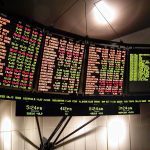The Importance of a Nest Egg
Your financial life and your personal one are not necessarily one and the same. While it can be tempting to think that where you are today is where you are going to be forever, in most cases this is not true. In the real world, the unexpected happens all of the time. Things could happen that you would never imagine. Though future problems are often unknowable, you can manage your finances to be prepared for them.
One of the best ways to protect yourself from small issues is to have a savings fund. This is money that is not to be used for investments that change in value such as stocks, and it is also not to be used as fun money. This is the money you can use if something serious happens, such as being fired or laid off or suffering from an inability to work due to illness or injury. In truth, the possible reasons why you may need to tap your savings can never be anticipated.
The amount of money you keep in your savings is a matter you have to consider very carefully. Most financial experts recommend at least six months’ worth of living expenses. If your job is riskier, consider saving up to a year’s worth of living expenses in cash. If your job is more secure, such as a tenured government job, then six months is more appropriate. With this much cash in your savings account, you can ride out many of the smaller financial issues you are likely to experience.
It’s important to remember that while cash tends to have a low yield, it should always be a part of your investment portfolio. While risk assets tend to produce the best returns, that “tend to” part is vitally important. Sometimes an investment takes a turn that nobody saw coming and having cash as a backup can help you keep your cool. It also opens up the possibility of putting more money into an investment that has dropped temporarily but is still solid. Tread cautiously if you do this unless it’s part of a long-term dollar cost averaging plan because it is far too easy to become emotionally invested in your investments. Remember that the purpose of any kind of investment is to either make you money or keep the money you already have, not to do something for your ego.
Your cash fund is all about keeping yourself going. If you do not have a cash fund set aside, sooner or later you will find yourself coming up short on either a major purchase or during a bad time. If something happens to your car or your home, you need to have a cushion of cash so you can get it repaired sooner instead of later. You probably don’t have your life set up so that you can simply avoid driving for a month or two while you save up to get your engine rebuilt.
This fund should not be used for spending. This is money that is to be used for emergencies, not to pay for a vacation. Your six-month fund is primarily concerned with carrying you if you suddenly lose your job and need to transition to something new. You may have to quit to take care of a loved one, you could be laid off, or a disability could prevent you from going to work. Any of these reasons and more could prevent you from receiving income from your employer. If you do not have cash saved up for such an event, you can quickly find yourself in serious trouble.
Planning Creates Stability
Planning ahead and saving money work together to make you more stable overall. While this is a very useful additional level of security for yourself, it works even better and is even more important when you have a family to take care of. Because family is generally made up of people who are dependent on one or two incomes, you need to plan for their continued safety and to effectively provide for them, even if an income becomes jeopardized. If you do not, issues will more deeply impact them than you might like. Children in particular need to be protected from many issues that you need to deal with on a regular basis.
Your loved ones depend on you, and thus they depend on your ability to make and execute plans that will keep them provided for. When you have planned ahead and have contingencies and savings in place, you provide your children with a far more stable lifestyle than if you avoid planning because it is unpleasant. What’s more, building and working on plans also makes you more stable in how you deal with other people because you are able to think rationally instead of being in a highly stressed “survival” mode.
Jim’s nest egg paid off — and so will yours
Here is a story about a man named Jim who may or may not really exist. But what happened to Jim happened to a lot of people who do exist, and it will happen again in the future. Jim is a car salesman who thought it was prudent to save up a year’s worth of cash before he got into risk assets such as stocks. Jim had a friend named Marshall who scoffed at the idea of saving up so much cash because it couldn’t earn anywhere near the rate of return that stocks tend to.
However, the financial crisis of 2008 changed the entire tone of the conversations the two fellows had. As stocks plunged and the economy thrashed around, all of Jim’s investments began to drop. But that wasn’t all that went down. His commissions at the car dealership also dropped because of the economy. So both Jim’s general income and his investments took a dive during this unfortunate period. But his cash didn’t go down because it was solid, and Jim was able to continue onward using that cash.
A lot of people during recessions end up having to sell stocks, bonds, real estate, and other risk investments because they put all of their money into them. But the people who have a solid cushion of cash to stand on have the ability to lean on that and avoid selling their risk investments at a loss or because of panic. While you do not necessarily have to have a year’s worth of cash, having a solid cushion that could last you at least six months is both a very good and a very comforting idea. When you have cash, you don’t have to sell until you really want to.








